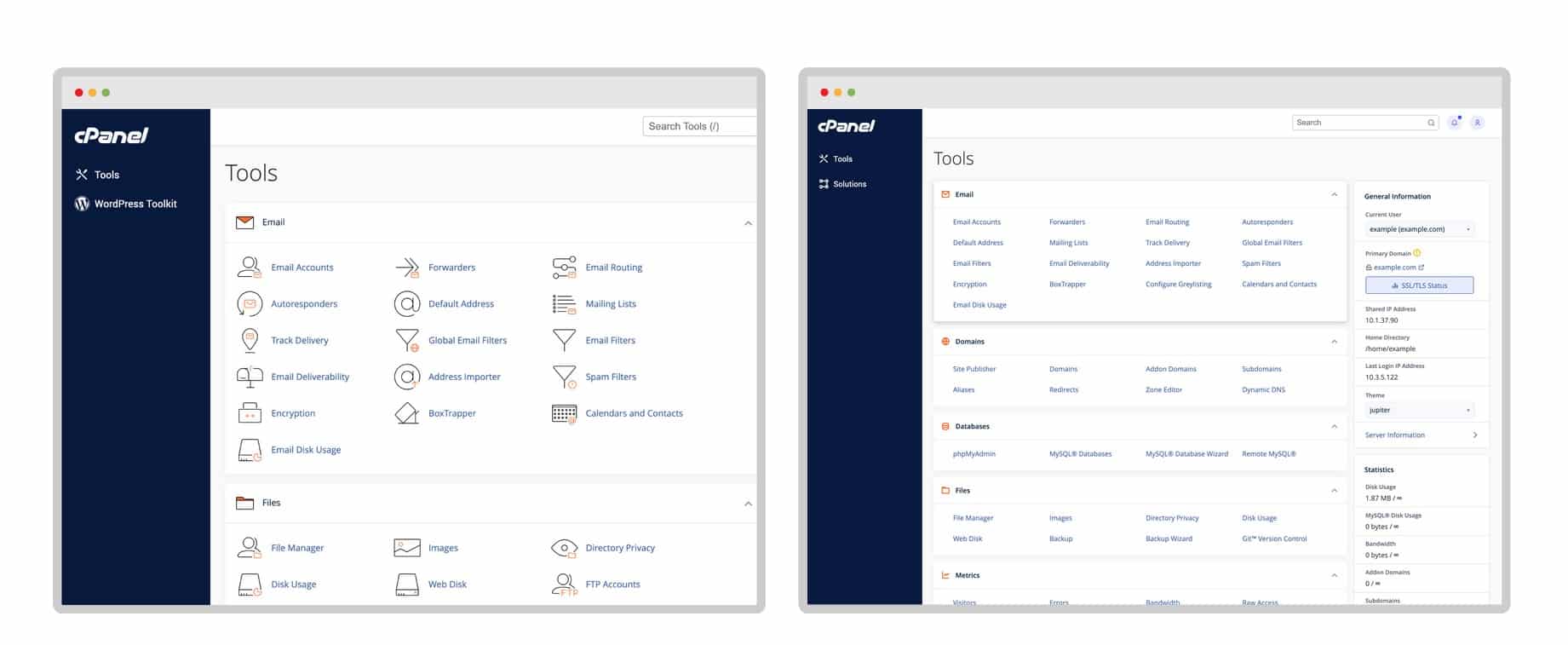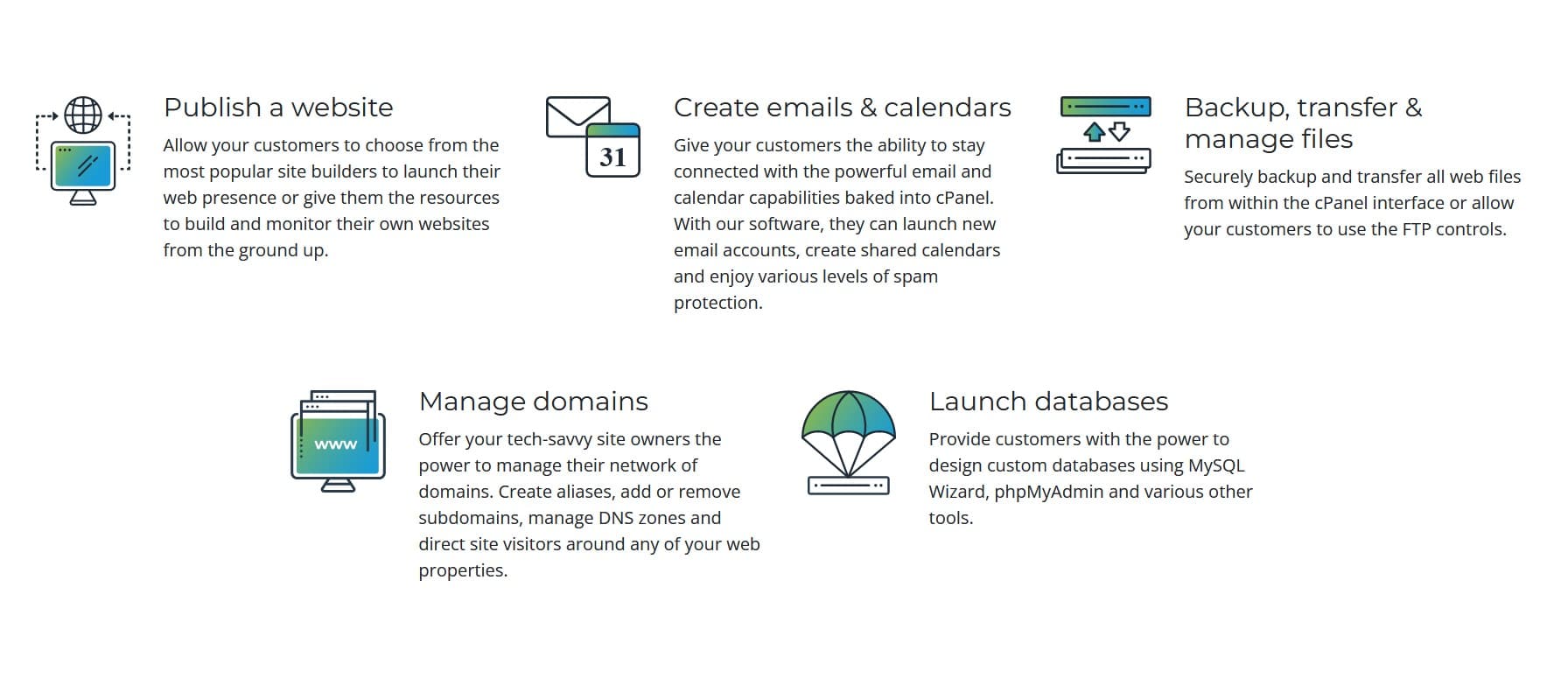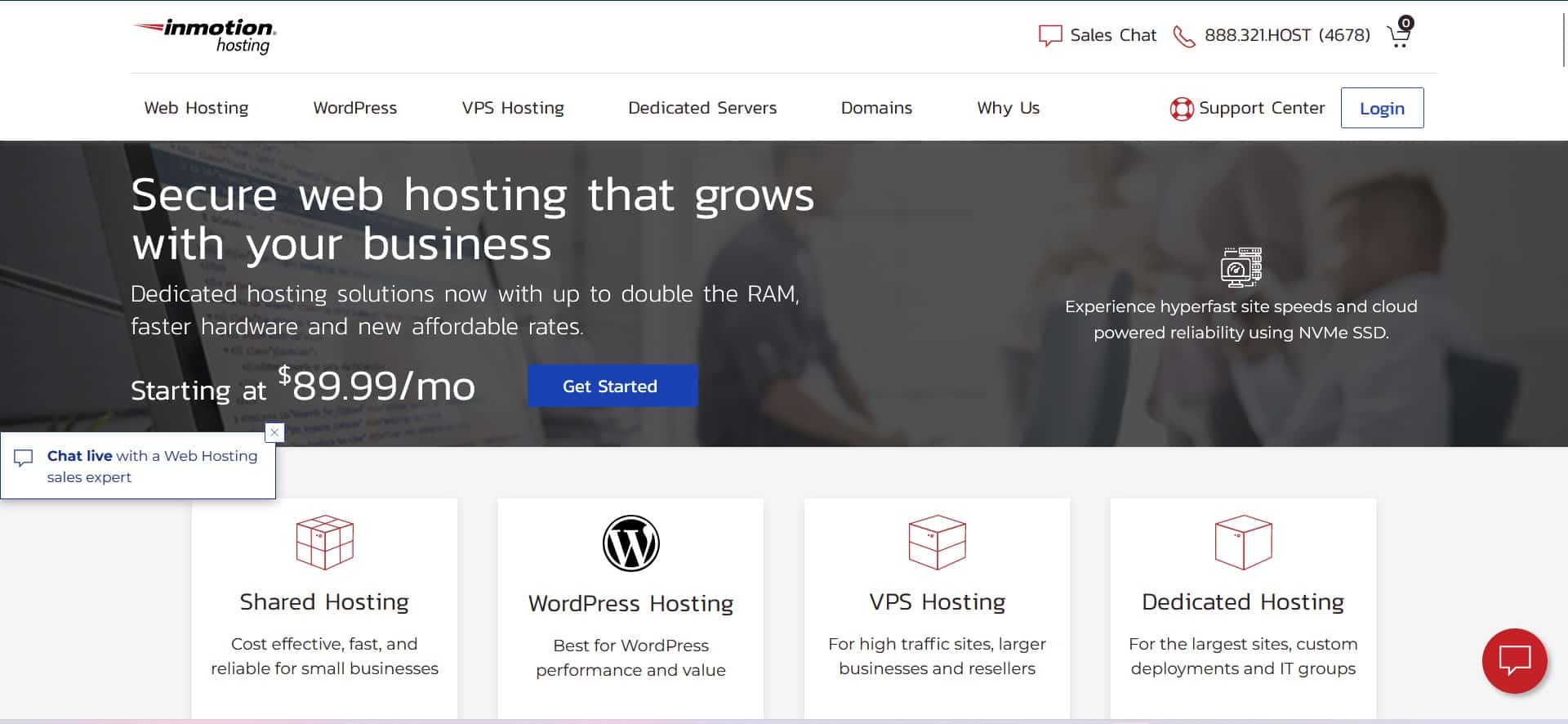Are you a beginner when it comes to web hosting?
Don’t worry; we’re here to help!
As an experienced web host, I’m here to walk you through the basics of cPanel hosting.
What is cPanel hosting? What does it offer? What are the benefits and drawbacks of choosing this type of hosting service?
This guide will give you all the necessary information to decide whether cPanel hosting fits your needs. Let’s get started!
What Does cPanel Stand For?
cPanel stands for “Control Panel” and is an incredibly user-friendly hosting control panel that provides access to a host of features.
It enables web admins to manage their websites, domains, email accounts, databases, files, and applications efficiently and quickly. cPanel is one of the leading web hosting control panels in the industry today.
What is cPanel Hosting?

cPanel is Linux-based web hosting that provides users with various features and tools through an easy-to-use graphical user interface.
cPanel is perfect for those new to web hosting, as it offers a simplified process of managing:
- domains
- email accounts
- databases
- files
- and applications
cPanel also provides access to website stats and analytics, meaning users can quickly monitor the performance of their website. Moreover, cPanel hosting comes with various security features, such as malware protection and automated backups.
At its core, cPanel is an intuitive platform that makes it easy to manage web hosting tasks without prior experience. Whether you’re an experienced webmaster or a beginner, cPanel hosting is an excellent choice for web hosting.
How Does cPanel Hosting Work?
The cPanel hosting plan provides users with a cPanel account as an online control panel to manage their web hosting.
This control panel, similar to a desktop application, allows users to quickly access all of the core elements of their website without the need for any programming knowledge.
The cPanel dashboard provides access to a range of features, such as:
- Installing content management systems (CMS)
- Accessing website stats and analytics
- Securing your site with SSL certificates
- Backing up and restoring data
- Creating and managing FTP accounts
Users can rapidly perform actions from the centralized system without knowledge of years of coding. Everyone can benefit from novice to advanced users/programmers when they trust CPanel.
cPanel hosting Pros and Cons
There are many benefits to choosing cPanel hosting. From the ease of use to improved security, cPanel hosting offers a comprehensive range of features.
In this section, we’ll look at all the advantages of using cPanel hosting.
Pro: cPanel Hosting is User-Friendly
One of the critical advantages of cPanel hosting is that it’s incredibly user-friendly. It provides an intuitive control panel allowing users to efficiently perform necessary website management tasks without prior experience.

The graphical user interface makes accessing core functions and features straightforward, meaning even beginners can confidently use cPanel hosting.
Pro: cPanel Hosting is Compatible
Another critical benefit of cPanel hosting is its compatibility. It supports many web applications and operating systems, ensuring users can quickly access the software for their website.
cPanel is compatible with all of the leading web browsers, including Firefox, Safari, and Google Chrome, as well as a host of third-party applications such as WordPress, Drupal, Joomla, and more. Using the best Drupal hosting provider can help increase compatibility.
Pro: cPanel Hosting Has Reliable Support
One of the main benefits of cPanel hosting is its reliable support. The customer service team is always on hand to help answer any questions or issues you may have with your website.
- The cPanel forums and blogs are excellent resources if you need more information.
- Numerous professionally certified technical manuals are available that dive into the details of both cPanel and WHM. Written as a comprehensive guide, these manuals follow step-by-step instructions to use cPanel and troubleshoot any issues.
Seamless access to the documentation means you waste no time finding the necessary information.
Pro: cPanel Hosting Automatic Software Installs
One of the benefits of cPanel hosting is its ability to automatically install software.
This makes it incredibly easy to install applications, such as WordPress and Joomla, with just a few clicks. The process is also incredibly fast, as cPanel hosts these essential programs on their own servers.
Moreover, you can upgrade or download existing applications with minimum effort.
Pro: cPanel Hosting Has Robust Features
The last benefit of cPanel hosting is the range of robust features available.
With no prior technical knowledge required, users can use cPanel to perform complex tasks like creating sub-domains, FTP accounts, MySQL databases, and generating site backups.

In addition, cPanel hosting provides access to various plug-ins and scripts that users can use for customizing websites and applications. Users can easily create a unique website that reflects their desired design and functionality.
Furthermore, most cPanel hosting is exceptionally fast, making it a great SEO hosting provider.
While cPanel hosting offers numerous benefits, it’s important to know the disadvantages before selecting this hosting platform.
In the next section, we’ll examine the cons of using cPanel Hosting.
Con: cPanel Is Costly
One of the cons of cPanel hosting is that it has the highest license cost compared to its rivals. Users have to pay a premium fee for using cPanel, which can be a major disadvantage for budget-conscious website owners.
Con: Data Loss Risks
Another disadvantage of cPanel hosting is an increased risk of data loss.
During major updates, the system may accidentally overwrite server settings and remove all data. This malfunction is often the cause of a crashed or failed hard drive and is a significant downside to using cPanel hosting.
In preparation, cPanel users should always have backups to ensure their data remains safe and secure.
cPanel hosting Comparisons
Now that we’ve discussed the benefits and drawbacks of cPanel hosting let’s look at how it stacks up against other web hosting options.
In this section, we’ll compare cPanel to popular types of web hosting, so you can decide which best suits your website’s needs.
Shared hosting is a web hosting service where multiple websites are hosted on the same server, allowing users to share resources such as CPU power, RAM, and disk space. This is typically the cheapest web hosting.
Unlike cPanel hosting, which requires users to manage their server, shared hosting offers simplified management with automated system updates and a basic control panel for making changes.
Shared hosting is a cost-effective choice for small businesses and individual sites with limited traffic. However, it does not offer the same level of performance or scalability as cPanel hosting.
cPanel Vs. Cloud Hosting
Cloud hosting is a type of web hosting service that enables users to store their data on multiple virtual servers.
Cloud hosting eliminates the need for physical hardware and provides cost savings and scalability that are not available with traditional hosting solutions.
Cloud hosting offers higher performance and reliability than shared hosting but does not provide the same level of control as cPanel hosting.
Please read our full guide on cPanel hosting vs. cloud hosting here.
cPanel Vs. VPS Hosting
VPS hosting is a type of web hosting service that utilizes virtualization technology to partition a physical server into multiple virtual servers.

Each virtual server can host individual websites, allowing users to benefit from the scalability and cost savings associated with sharing resources without sacrificing performance.
Unlike cPanel hosting, which requires users to manage their own server, VPS hosting offers a higher level of automation and control, making installing software and configuring settings easier.
cPanel Vs. Dedicated Hosting
Dedicated hosting is a type of web hosting service where the user has full control over an entire physical server.
Dedicated hosting offers users greater flexibility and scalability than shared or cloud hosting solutions, as well as improved performance due to not sharing resources among multiple users.
Unlike cPanel hosting, dedicated hosting requires users to manage their own server, which may require more technical knowledge and expertise than other hosting solutions. In addition, dedicated hosting is often more expensive than cPanel or other web hosting services.
When to Use cPanel Hosting
Overall, cPanel hosting is ideal for users who value scalability, control, and performance without sacrificing simplicity.
cPanel hosting may be the best option for you if:
- you need a high level of control over your server environment
- you need a convenient and user-friendly control panel
- you need scalability for future growth
cPanel is versatile enough to accommodate the needs of small and large enterprises.
cPanel hosting Alternatives
While cPanel hosting provides an excellent balance of control and cost-effectiveness, a few alternatives may better suit your needs.
Next, we’ll look at some of the most popular alternatives, so you can decide which one best suits your website’s needs.
Dedicated Hosting
Dedicated hosting is a great alternative to cPanel hosting for users who need the highest level of control over their server environment.
- Dedicated hosting gives users full control over their physical server, enabling them to configure settings and install software as they wish.
- Dedicated hosting offers increased performance levels due to not sharing resources with other users, making it ideal for larger enterprises that need to handle large amounts of traffic.
However, dedicated hosting is often more expensive than cPanel hosting and may require more technical knowledge and expertise.
Cloud Hosting
Cloud hosting is an excellent alternative to cPanel hosting for users who need the scalability, performance, and cost savings associated with virtualized resources.
- Cloud hosting eliminates the need for physical hardware and provides higher levels of reliability than shared hosting solutions.
- Cloud hosting offers automated control, making managing software installations and configurations easier without sacrificing performance or scalability.
- Cloud hosting is also usually less expensive than cPanel hosting, making it more cost-effective for businesses of all sizes.
As a result, cloud hosting may be the best option for users who need scalability and performance without sacrificing convenience or affordability.
Shared hosting is a great alternative to cPanel hosting for users who are just starting and don’t need a lot of control or scalability.
Shared hosting offers users the convenience of automated control, making it easier to install software and configure settings without managing their own server.
Additionally, shared hosting is often more affordable than cPanel hosting, making it more cost-effective for small businesses and individuals.
As a result, shared hosting may be the best option for users who need reliable web hosting at an affordable cost.
Best cPanel Hosting Services
A2 Hosting

A2 hosting provides some of the best cPanel hosting services, thanks to their robust hosting packages specially tailored for WordPress.
In addition to reliable packages, A2 Hosting is renowned for its:
- Excellent customer service
- Great uptime performance
- Good money-back refund plans
A2 hosting is one of the top cPanel hosting services to choose from.
Bluehost

For businesses looking for reliable long-term web hosting, Bluehost offers affordable solutions backed by WordPress.
We chose Bluehost because it offers:
- 24/7 customer support
- Long-term plans at an affordable rate
- Endorsement from WordPress
Bluehost’s renowned performance and reliability make it a favorite among small businesses and bloggers.
InMotion

When you are looking for the best cPanel hosting services, InMotion stands out from the crowd.
We chose InMotion for its:
- fast page loading time and extreme reliability,
- 90-day money-back guarantee
- BoldGrid website builder for WordPress allows users to create beautiful websites quickly and easily.
All these features combined make InMotion one of the best cPanel hosts today.
cPanel Hosting Conclusion
In conclusion, cPanel hosting offers a wide range of benefits to users who need reliable and affordable web hosting.
Whether you need shared hosting, dedicated hosting, or cloud hosting solutions, cPanel has various options to suit any user’s needs.
It is essential to research and find the best cPanel host that meets your budget and performance requirements.
Now I’d like to hear from you! What is the most critical factor when selecting a cPanel hosting service? Share your thoughts in the comments below!
cPanel Hosting FAQ
Host in cPanel is an interface that allows you to manage your web hosting account.
The control panel provides a graphical user interface (GUI) for managing server applications, databases, files, and more. It simplifies the process of setting up your website or blog significantly.
A cPanel allows you to manage your web hosting account. It provides a graphical user interface (GUI) for managing server applications, databases, files, and more. It simplifies the process of setting up your website or blog significantly.
It is not necessary to have a cPanel. However, it can make managing your website or blog significantly easier. Some web hosting providers may offer access to a control panel at an extra cost. However, many cPanel hosting providers now offer free services with their plans.
GoDaddy cPanel hosting provides a graphical user interface (GUI) for managing server applications, databases, files, and more. It significantly simplifies setting up and managing your website or blog.
Yes, it is possible to host a website without cPanel. However, as mentioned above, cPanel provides a graphical user interface for managing server applications, databases, files, and more. This simplifies the process of setting up your website or blog significantly. You can also use manual installation processes or alternative control panel solutions like Plesk to manage your web hosting account.


